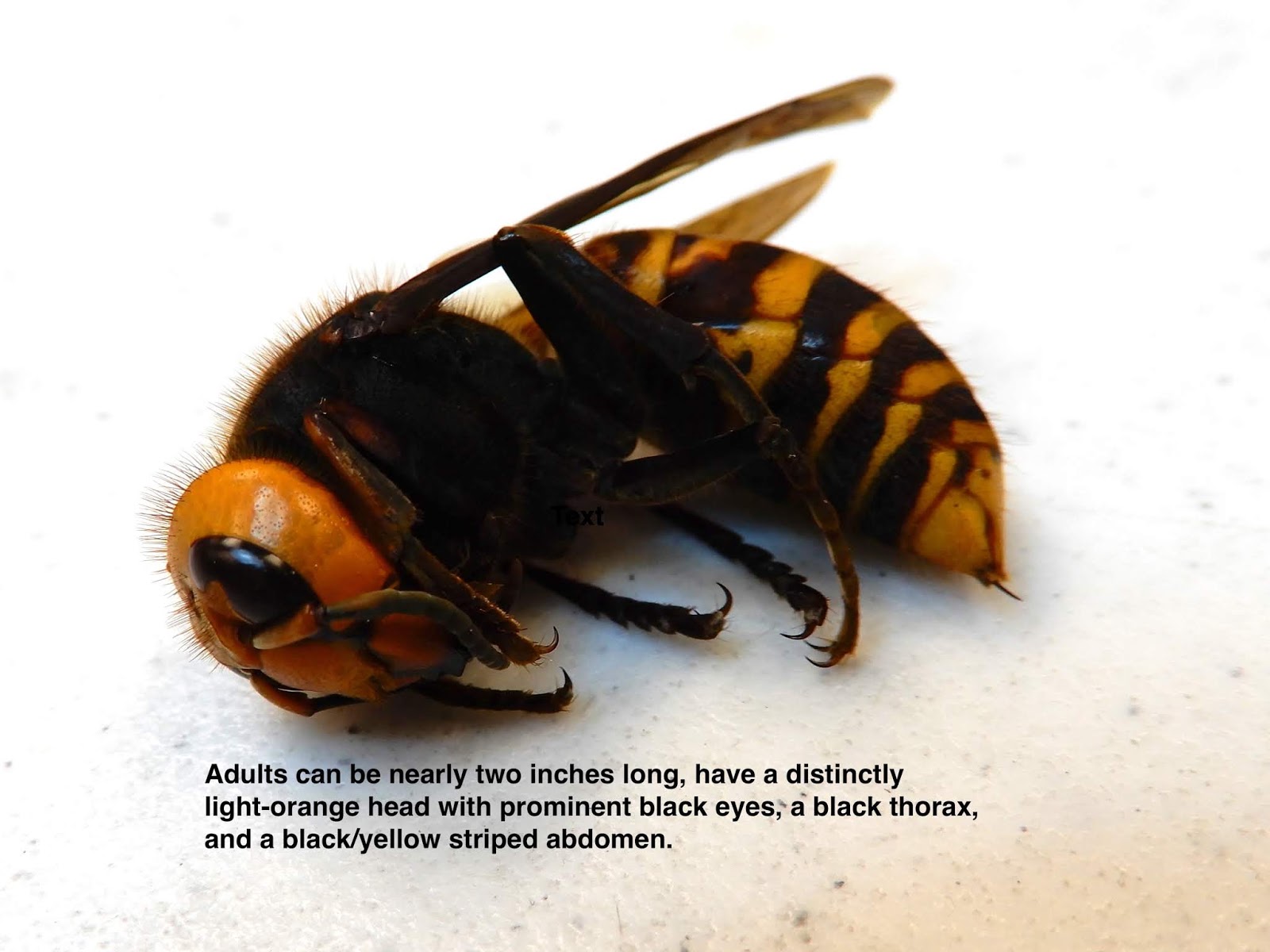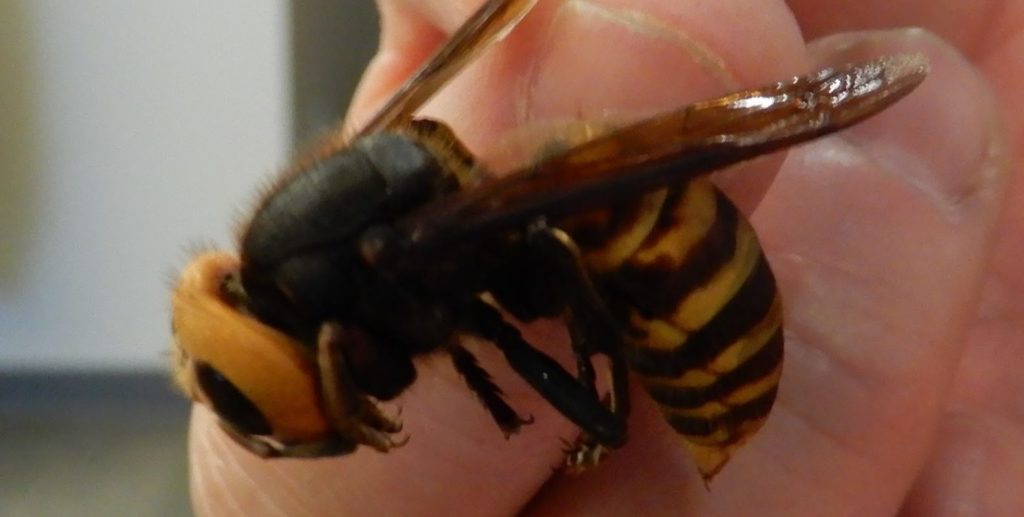Jan 2, 2020Honeybee-eating wasps invade Washington state
In December, WSDA entomologists identified a large hornet found near the Canadian border as an Asian giant hornet (Vespa mandarinia), an invasive species not previously found in Washington State.
Although it is not typically aggressive toward humans, this unwelcome pest can inflict a powerful sting and also represents a threat to honeybees, for which they have a voracious appetite.
On Dec. 8, a resident in Blaine near the Canadian border reported an unusually large hornet they found on their property. Two days later, WSDA visited the site, collected the specimen, which was dead, and confirmed its identity a short time later.
The resident also reported seeing a live giant hornet at a hummingbird feeder before it retreated into a nearby forest.
WSDA and Washington State Department of Health (DOH) officials ask people in the area to be on the lookout for and take precautions to avoid contact with these large bugs.
The invasive hornets are typically almost an inch and a half long and are distinguished by their large yellow heads.
Asian giant hornets nest in the ground. Though they are typically not interested in humans, pets or large animals, they can inflict a nasty sting if threatened or their nest is disturbed.
Asian giant hornets are typically dormant over the winter, and are most often seen from July through October.
Health advice


DOH advises individuals to take preventative measures in the outdoors by keeping food and drink covered or under screens, and cleaning up by disposing of food and garbage properly. People should avoid swatting at the hornets, which may cause these insects to sting.
If you are stung, DOH recommends washing the site thoroughly with soap and water and applying ice or a cold compress to reduce swelling. The agency also recommends an antihistamine or use of anti-itch cream to reduce itching if necessary. If you are stung multiple times or have symptoms of a severe reaction following a sting, call 911 or seek medical care immediately.
Additional information about bee and wasp stings and prevention measures can be found on the DOH website.
A threat to bees
Asian giant hornets feed on insects and are of particular concern to beekeepers because they are capable of quickly destroying honeybee hives.
This is the first time this invasive species has been detected in Washington State. In August, a large colony of Asian giant hornets was discovered and subsequently destroyed in British Columbia. The BC Ministry of Agriculture issued a pest alert about the detection in September.
Responding to the Asian giant hornet
In 2020, WSDA will conduct outreach to generate public assistance in looking out for the Asian giant hornet and reporting any detections to the WSDA Pest Program.
Additionally, WSDA is preparing plans to set traps in the Blaine area to monitor for Asian giant hornets.
If you think you may have spotted an Asian giant hornet, report it to WSDA’s pest program and, if possible, include a photo.
– Chris McGann, Washington State Department of Agriculture















